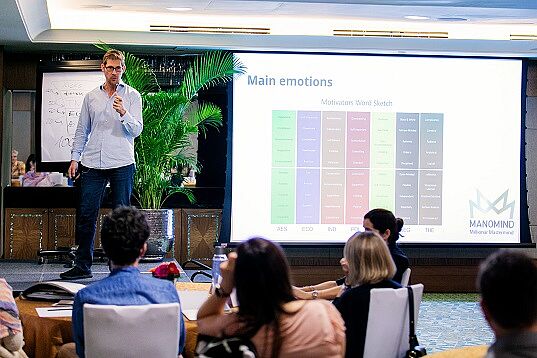10 Reasons Why Emotional Intelligence is One of the Top Valued Job Skill
What is Emotional Intelligence?
According to Salovey-Mayer, the proponents of this psychological theory, emotional intelligence “is a form of social intelligence that involves the ability to monitor one’s own and others’ feelings and emotions, to discriminate among them, and to use this information to guide one’s thinking and action.”
In simple terms, it is how you recognize and understand your own and others’ feelings, and how you manage your own and others’ emotions.
These days, hiring managers and business owners have realized the value of Emotional Intelligence over a person’s IQ. According to a CareerBuilder survey, 34% of hiring managers put greater emphasis on emotional intelligence when hiring and promoting, while 71% put greater value on EI over IQ in an employee.
Why do employers put such a premium on this job skill? Here are the top 10 reasons:
- They will remain calm under pressure
If you were thrown a curveball, how do you react? A person with high EQ has control over their emotions. It does not mean they do not get flustered. They just know their triggers and they have mastery over them.
- They know how to effectively resolve conflict
High EQ people are solution-driven. They look at the big picture, respect others’ viewpoints, listen, and use these to facilitate general agreement among team members.
- They empathize with the team
High EQ people can read other people’s emotions and identify what they are feeling. And then, put themselves in the other person’s shoes.
- They lead by example
Leading by example demonstrates integrity.
- They can discuss tough issues thoughtfully and then make relevant decisions
They hit the pause button before they act. The pause allows them to take a breath and think.
- They admit mistakes and learn from them
They do not resort to blame-shifting to evade responsibility. They step up and take the heat. They know that the buck stops right at their door.
- They listen more than they talk
They listen to understand, not to respond.
- Always keep their emotions in check
They are aware of their emotions, their effect on their performance, and other people, and then manage them.
- They accept criticism and take them well
High EQ people know how to objectify a comment, a message, or criticism. They do not take everything as a personal attack on their performance or work.
- They show grace under pressure
High EQ people are resilient. They do not fold up under pressure but handle pressure with calm and grace.
Brief History
The first use of the term “emotional intelligence” was from a doctoral dissertation paper written by Wayne Leone Payne in 1985.
In 1990, two American university professors, Peter Salovey and John Mayer researched the subject and developed a test to measure emotional intelligence.
Daniel Goleman, a science journalist for the New York Times, got wind of Salovey and Mayer’s work and in 1995 got permission from Salovey-Mayer to use the term Emotional Intelligence. He then wrote a book entitled Emotional Intelligence.
Conclusion
Are you emotionally intelligent? There is an objective method to find out. Check your emotional intelligence quotient. It is never too late to improve and if you have a high EQ score, strengthen your skill. High EQ has been linked to impressive job performance and job satisfaction. The good news is, just like all the other skills, emotional intelligence can be developed and increased.
« Back